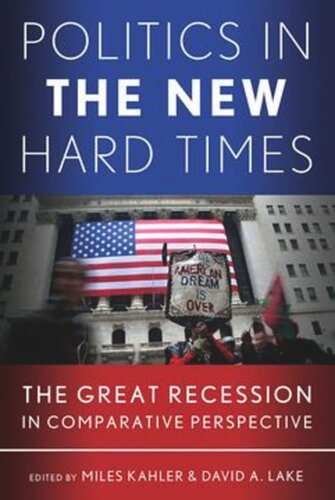

Most ebook files are in PDF format, so you can easily read them using various software such as Foxit Reader or directly on the Google Chrome browser.
Some ebook files are released by publishers in other formats such as .awz, .mobi, .epub, .fb2, etc. You may need to install specific software to read these formats on mobile/PC, such as Calibre.
Please read the tutorial at this link: https://ebookbell.com/faq
We offer FREE conversion to the popular formats you request; however, this may take some time. Therefore, right after payment, please email us, and we will try to provide the service as quickly as possible.
For some exceptional file formats or broken links (if any), please refrain from opening any disputes. Instead, email us first, and we will try to assist within a maximum of 6 hours.
EbookBell Team

4.1
80 reviewsThe Great Recession and its aftershocks, including the Eurozone banking and debt crisis, add up to the worst global economic crisis since the Great Depression of the 1930s. Although economic explanations for the Great Recession have proliferated, the political causes and consequences of the crisis have received less systematic attention. Politics in the New Hard Times is the first book to focus on the Great Recession as a political crisis, one with both political sources and political consequences.The authors examine variation in crises over time and across countries, rather than treating these events as undifferentiated shocks. Chapters also explore how crisis has forced the redefinition and reinforcement of interests at the level of individual attitudes and in national political coalitions. Throughout, the authors stress that the Great Recession is only the latest in a long history of international economic crises with significant political effects—and that it is unlikely to be the last.Contributors: Suzanne Berger, MIT; J. Lawrence Broz, University of California, San Diego; Peter Cowhey, University of California, San Diego; Peter A. Gourevitch, University of California, San Diego; Stephan Haggard, University of California, San Diego; Peter A. Hall, Harvard University; Miles Kahler, University of California, San Diego; Peter J. Katzenstein, Cornell University; Ikuo Kume, Waseda University; David A. Lake, University of California, San Diego; Megumi Naoi, University of California, San Diego; Stephen C. Nelson, Northwestern University; Pablo Pinto, Columbia University; James Shinn, Princeton University